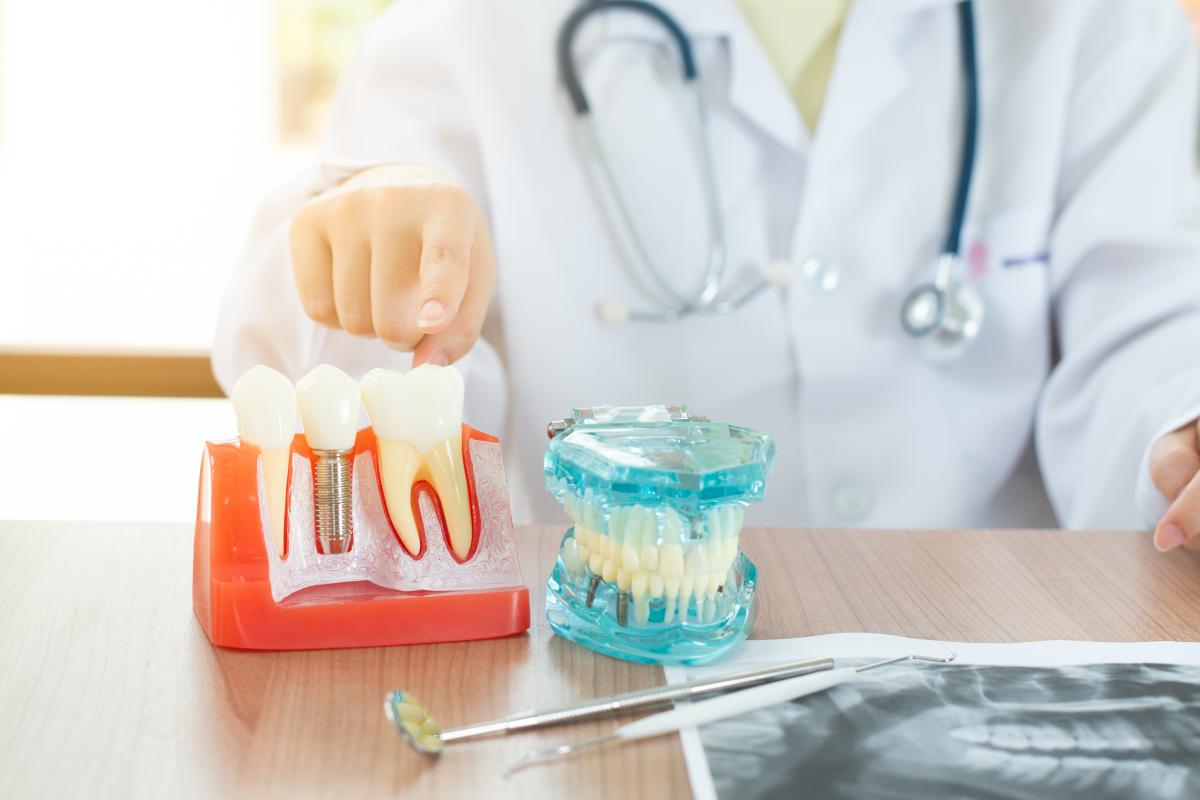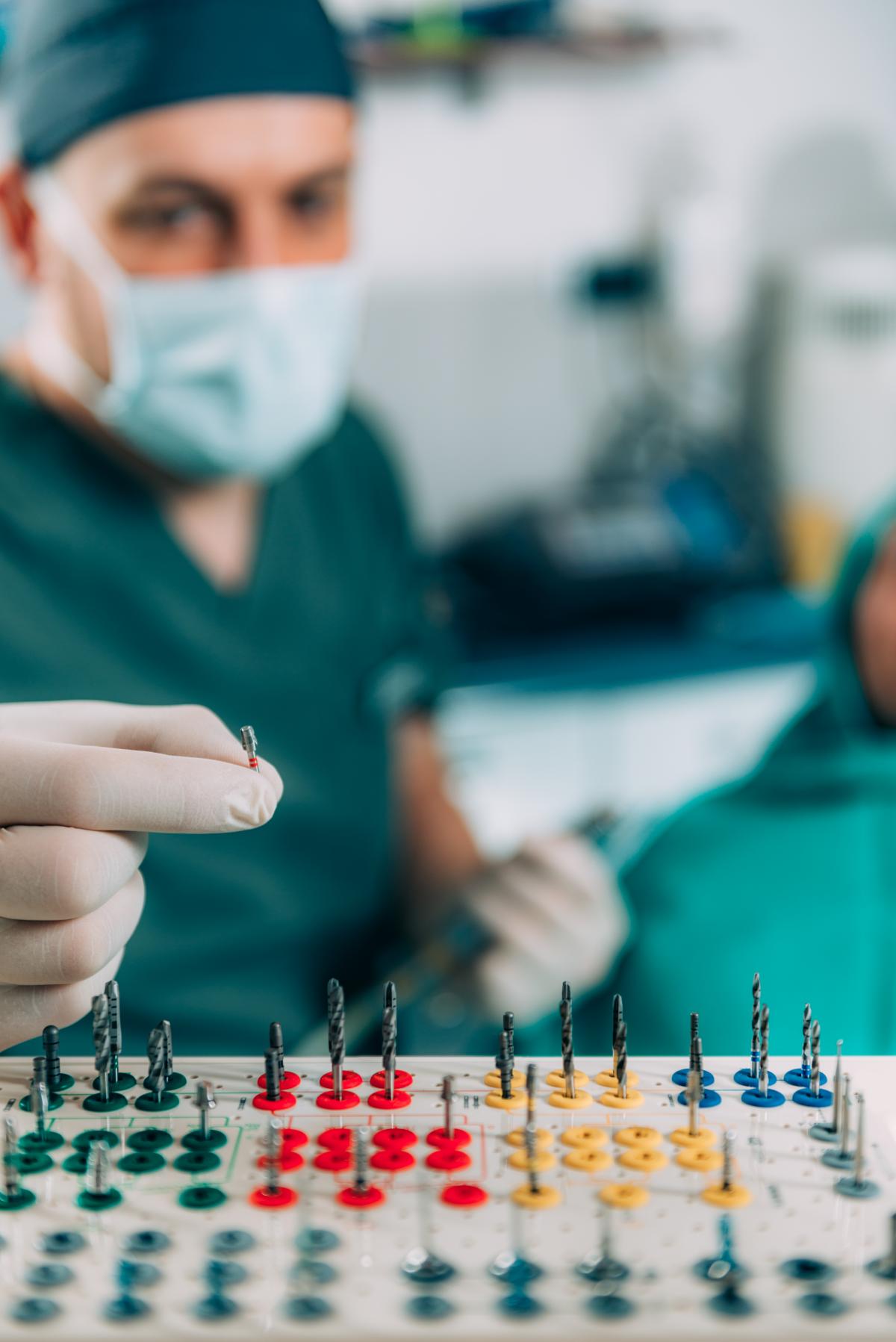Dental Implants
Dental implants are one of the best ways to replace missing teeth.
When teeth are lost because of disease or an accident, dental implants may be a good alternative. You may decide to go for dental implants if you:
Hide your smile because you are not confident of opening your teeth.
Wear dentures that are uncomfortable
Are not satisfied with your removable partial dentures
Want to keep your other teeth intact
Numerous individuals choose implants to replace a single tooth or several teeth or to support a full set of dentures. Implants are posts precisely positioned into the upper or lower jawbone. They supplant the base of one or more missing teeth.
Dental implants are produced from titanium and other materials that are not harmful to the body. More than 5 million implants are placed annually by dentists in the United States.
Advantages of dental implants
- Implants provide rigid support to dental prosthetics. Dentures, bridges, or single teeth attached to the implants won’t slip or shift in your mouth-a very important advantage when eating and speaking.
- Dental implants also help dental prosthetics feel more natural compared to the usual bridges or dentures.
- Some people may find implant-supported dentures more pleasant than dentures that do not use implants.
- Where teeth are missing, dental implants also help keep the jawbone from shrinking.
- Implants are a good value because they can last a lifetime with adequate maintenance.
Single tooth implants
The single tooth embed replaces the missing tooth’s foundations. A solitary tooth embed is an independent unit and doesn’t include treating the teeth close to it.
If you are missing one or more teeth, there are many reasons why you should replace them:
- You may not like how the gap looks when you smile.
- Missing teeth may affect how you speak.
- A missing molar tooth can make it harder to chew.
- When a tooth is lost and not replaced with a new one, the teeth around it can lose alignment.
- When a tooth is missing, it can also lead to bone loss, which could weaken the remaining tooth over time.
- Your facial structure may change as a result of tooth or bone loss making you look older than your real age.
Implant-supported bridges and dentures
Dental implants can be used to support an extension when a few teeth are absent. The implant-supported extension replaces the lost natural teeth and a portion of the tooth roots. In contrast to conventional bridges, an implant-supported bridge does not need support from the teeth close to it. If you are missing all of your teeth, and embed upheld dental replacement can supplant the missing teeth and a portion of the tooth roots. Since the dental implants fuse with the jawbone, an embedded upheld dental replacement will in general be agreeable and stable, allowing you to bite and chew naturally.
What is involved in implant placement?
Many kinds of implants are available. Treatment can take 24 hours, weeks, or months. We can discuss which type of implant is perfect for you. If you want implant placement, we will refer you to an implant surgeon, typically a periodontist or oral surgeon, who will do implant surgery to place the implant.
Implant treatment usually involves three basic steps:
Placement of the implant
We will cautiously find where the implant ought to be placed using estimations and x-beams. You will be referred to an implant specialist, ordinarily, a periodontist or oral specialist, to play out the implant medical procedure and place the implant into the jawbone. You may make them swell or potentially delicacy after the medical procedures. During the healing process, your dental specialist may advise you to eat delicate nourishments.
Healing process
What makes an implant so strong is that the jawbone grows around it and makes it firm and rigid. This process, called Osseointegration (OSS-e-o-in-te-GRAY-shun), is time-consuming. It may even take several weeks before the implant is completely fused into the bone. After that, you can now get a permanent replacement tooth or teeth. In most cases, the implant and temporary replacement teeth can be placed in one visit.
Placement of the prosthesis
In the case of a single tooth implant, the dentist will design a new tooth for you, called an implant-supported crown. It is designed to look just like your other teeth. Implant-supported bridges and dentures are also custom-made to look like natural teeth and to perfectly fit into your mouth. The replacement teeth are attached to the structure that is placed in the implant called an abutment.
Replacement teeth usually take some time to make. In the meantime, your dentist may provide a temporary crown, bridge, or denture for you to use. This will help you manage to eat and speak until the real replacement teeth are ready.
Who is a good candidate for dental implants?
If you have no health issues and your jaw can support an implant, this treatment is strongly recommended for you. Your health is more important than your age.
However, implants are not an option for everyone. The health of the patients should be sound before scheduling any implant surgery. They should have enough bone to support the implant or be able to have surgery to build up the jawbone. Bone can sometimes be structured with a bone graft or with sinus lift surgery. Chronic illnesses, such as diabetes and leukemia, may slow healing after surgery. Implant treatment may not be a viable alternative for patients with these illnesses. Usage of tobacco can also slow the healing process.
If your dentist suggests implant treatment, careful oral hygiene is important for the success of the implant. You must invest time and resources maintaining the implant and making sure the area surrounding the implant is very clean. If not, gum disease might occur, which may weaken the bone and tissues needed to support the implant.
Other things to think about
You should communicate carefully with your dentist when it comes to implant treatment. Dental implant treatment can take time and cost more than other replacement alternatives. But dental implants are often a good value because they can last a lifetime.
Have a discussion with your dentist about dental implants. We can help you decide if implant treatment is perfect for you. With careful treatment planning and good oral care, dental implants can provide a healthy smile for a lifetime.
Looking for a professional dental implant in Houston, TX and surrounding areas? Don’t look any further than Bello Dental.



